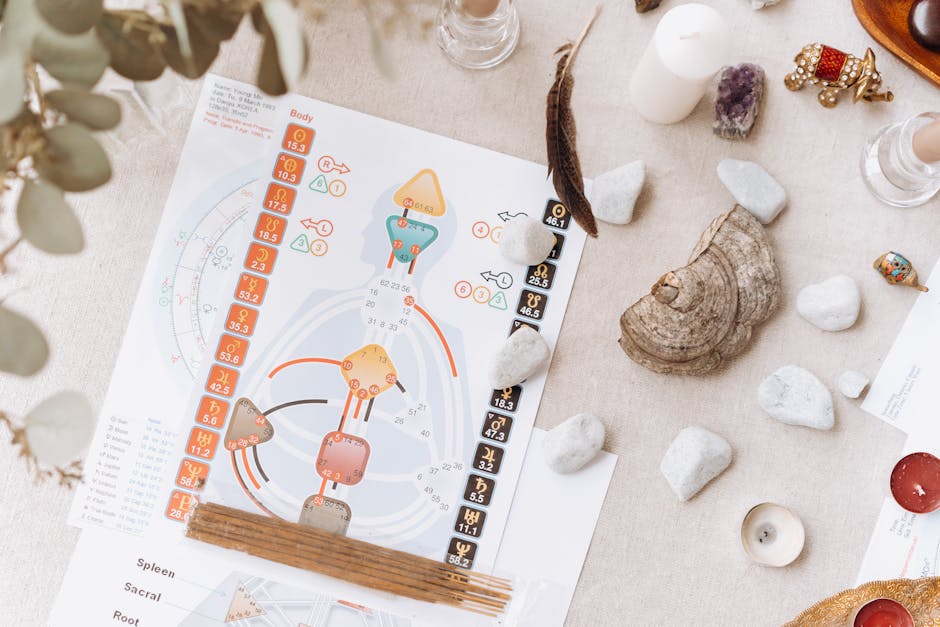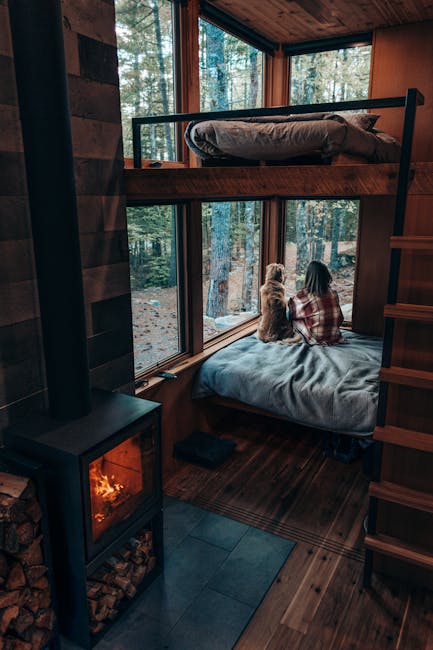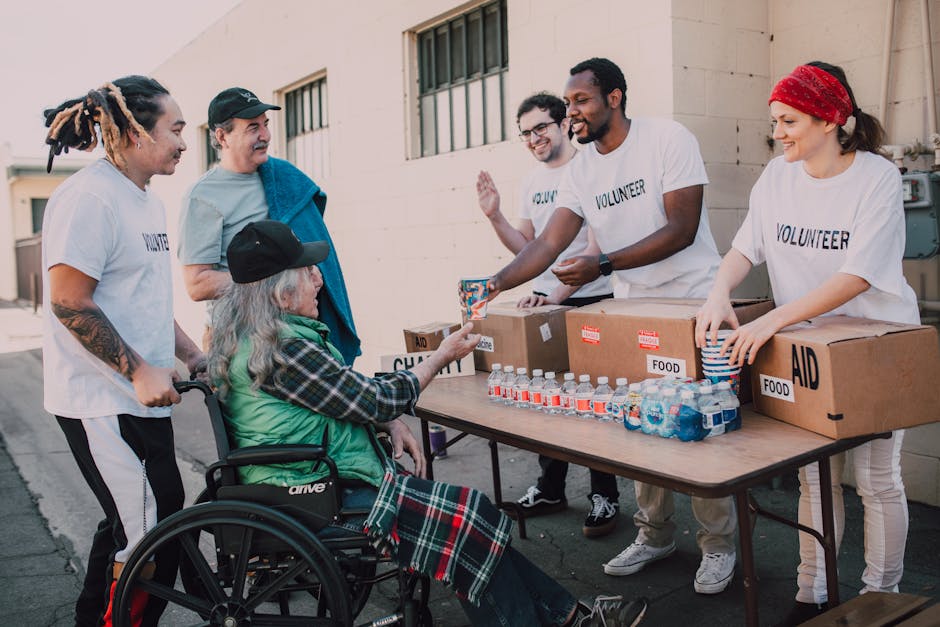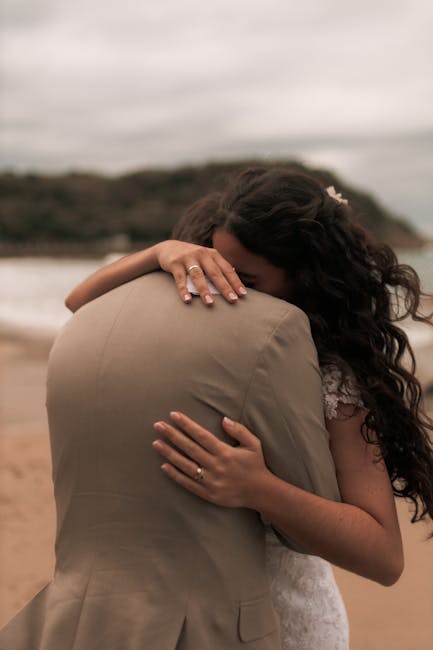Hi, Friend! Jen Glantz here. I’m a bestselling author, the first ever bridesmaid for hire and have been hired by hundreds of brides all over the world. Let’s talk about bachelorette party ideas for introverts.
According to a recent survey by The Knot, 67% of brides report feeling anxious about their bachelorette celebrations, with introverted brides experiencing significantly higher stress levels. I discovered this firsthand when planning my best friend’s pre-wedding celebration. Despite being her maid of honor, I initially made the mistake of planning a traditional night out that left her exhausted instead of energized. We quickly pivoted to something more aligned with her personality, and the difference was remarkable.
Quick Resources:
- The #1 Bachelor Party Planner Tool
- Our Bachelorette Party Guide: Tons of advice, tips, and more!
- Bachelorette party games and accessories all in one place
- A guide on creating a bachelorette party budget
- Our #1 Wedding Speech and Vows Writing Tool
Key Considerations for Introverted Bachelorette Parties
Planning a successful bachelorette party for introverts requires thoughtful consideration of several key factors. Introverts recharge through alone time and can become drained by extended social interaction, making energy management crucial. Keeping gatherings intimate with close friends rather than large groups helps prevent overwhelm. The environment should feature manageable noise levels and adequate personal space.
Focus on meaningful connections rather than spotlight-grabbing games, while gently pushing boundaries without forcing the bride outside her fundamental comfort zone. Consider shorter timeframes or spreading activities across multiple days with recovery time. Provide detailed itineraries in advance so the introvert can mentally prepare, and ensure there are ways for the bride to step away briefly if needed.
If you’re still uncertain about how to balance celebration with comfort, our guide on how to plan a bachelorette party offers additional insights into creating the perfect event for any personality type.
> View All Bachelorette Party Tools Here
| Introvert Need | Why It Matters | How to Address It |
|---|---|---|
| Energy Management | Introverts lose energy in social settings | Schedule downtime between activities |
| Controlled Environment | Sensory overload can cause anxiety | Choose venues with moderate noise levels and adequate space |
| Meaningful Connection | Quality over quantity in social interactions | Focus on deep conversations rather than “party games” |
| Advance Preparation | Reduces anxiety about unknown situations | Provide detailed itineraries before the event |
| Escape Options | Allows for brief recharging moments | Ensure private spaces are available for short breaks |
Introverts process dopamine differently than extroverts, making them more sensitive to overstimulation in high-energy environments, which explains why traditional bachelorette activities can feel draining rather than energizing.
Research from the Journal of Experimental Psychology shows that introverts perform cognitive tasks better in quiet environments with minimal distractions, suggesting that carefully selected venues with controlled sensory input will significantly improve an introverted bride’s experience.
When planning my sister’s bachelorette weekend, I created what I called “recharge pockets” throughout our itinerary. After our two-hour spa morning, I scheduled a 90-minute break before lunch where everyone could return to their rooms to read, nap, or simply be alone. She later told me this intentional downtime was what made the entire weekend enjoyable rather than exhausting, as she had time to process and recharge between social activities.
Relaxation-Focused Celebrations
1. Private Spa Day
Book an entire small day spa or reserve a private section exclusively for your group of 5-8 people. Include treatments like massages, facials, and body wraps, with quiet relaxation time between services. Arrange a light, healthy lunch served in a private room. Consider ending with gentle activities like floating in a sensory deprivation tank or relaxing in a salt room.
This option excels in energy management with natural quiet time between treatments, provides a peaceful environment, and offers treatment rooms as natural privacy spaces when needed.
If you’re looking for more ways to make the celebration special, check out our bridal shower vs. bachelorette party guide to understand how these events can complement each other for the perfect pre-wedding experience.
Spa environments typically maintain sound levels between 40-50 decibels, well below the 60+ decibels found in restaurants and bars, creating an optimal auditory environment for introverts who can become overstimulated by excessive noise.
Studies show that massage therapy reduces cortisol levels by an average of 31% while increasing serotonin by 28% and dopamine by 31%, providing neurochemical benefits particularly valuable for introverts who may experience heightened stress in social situations.
Start planning the bachelorette party here >>
2. Yoga Retreat Weekend
Find a dedicated yoga center offering weekend packages with private accommodations rather than shared dorms. Schedule 1-2 gentle yoga classes daily with plenty of free time between. Include guided meditation sessions and healthy, nourishing meals. Choose locations with natural beauty like mountains or lakeside settings.
Yoga practice combines physical movement with breathwork that activates the parasympathetic nervous system, reducing anxiety by up to 30% according to research published in the Journal of Alternative and Complementary Medicine.
The structured nature of yoga retreats provides predictable scheduling with clear expectations, reducing the cognitive load for introverts who often expend mental energy navigating uncertain social situations.
> View All Bachelorette Party Tools Here
3. Cabin Getaway
Rent a spacious cabin with enough bedrooms for comfortable sleeping arrangements, avoiding forced room sharing if possible. Look for properties with outdoor features like hot tubs, fire pits, and hiking trails. Stock the kitchen with easy meal ingredients or arrange meal delivery. Plan low-key activities like board games, reading time, and optional group hikes.
Allow plenty of unscheduled time for organic conversations or alone time. This option provides excellent energy management with a flexible schedule, adapts to various group sizes, and offers multiple escape options through bedrooms and outdoor spaces.
Natural environments have been shown to reduce mental fatigue and restore attention, with studies demonstrating that even 20 minutes in nature significantly lowers cortisol levels—particularly beneficial for introverts who may experience social fatigue.
The psychological concept of “soft fascination” (gentle engagement with natural surroundings) provides cognitive restoration without the demanding attention requirements of social interaction, making cabin settings ideal for introverted recovery.
4. Beach House Escape
Secure an oceanfront property with multiple bedrooms and a large common area. Choose locations during shoulder seasons to avoid tourist crowds. Create a relaxed schedule with optional morning beach walks, afternoon reading time, and sunset wine gatherings. Prepare a rotation for meal preparation or hire a chef for one special dinner. Include a basket of books related to the bride’s interests.
This option provides excellent energy management through the natural environment, works with groups of 6-12 people, and offers private rooms and beach walks as alone time opportunities.
The rhythmic sound of ocean waves produces alpha brain waves associated with relaxation and meditation, creating a naturally calming auditory environment that reduces cognitive load for introverts.
Beach environments combine multiple sensory elements proven to reduce stress: negative ions from ocean air, blue color psychology effects, and natural white noise—all creating an optimal setting for introverted relaxation without requiring social performance.
Start planning the bachelorette party here >>
5. Hot Springs Visit
Research natural hot springs or upscale hot spring resorts with private soaking options. Some locations offer private rental of entire pools by the hour. Bring comfortable robes, water bottles, and light snacks. Consider adding massage treatments if available. Plan for 2-3 hours of soaking time with breaks.
Some locations offer overnight accommodations for a full weekend experience. This option provides excellent energy management through naturally relaxing activity, works best with smaller groups of 4-8 people, and promotes natural conversation flow.
Hot springs contain minerals like magnesium and calcium that are absorbed through the skin during soaking, naturally reducing muscle tension and promoting relaxation without requiring active social participation.
The combination of heat therapy and mineral content increases blood circulation by up to 25%, delivering more oxygen to brain tissues and potentially improving cognitive function during social interactions—particularly beneficial for introverts who may experience mental fatigue in group settings.
Creative Experiences
6. Private Art Class
Arrange for an instructor to lead a 2-3 hour painting, pottery, or other art class either at a studio that offers private events or at someone’s home. Choose a project everyone can complete regardless of skill level. Consider selecting a theme meaningful to the bride. Include wine and appetizers served throughout. Take home the finished pieces as mementos.
This option provides good energy management through a focused activity with natural breaks, works well with groups of 5-10 people, and creates bonding through shared experience.
Creative activities engage the brain’s default mode network, allowing for what psychologists call “flow state”—a form of focused attention that reduces self-consciousness and social anxiety while promoting positive emotions.
Art-making has been shown to reduce cortisol levels by up to 75% in some studies, regardless of artistic skill level, making it particularly effective for managing the social stress introverts may experience during group celebrations.
7. Cooking Class
Book a private cooking class focusing on the bride’s favorite cuisine or something new everyone wants to learn. Look for venues with individual cooking stations rather than demonstration-only formats. Choose interactive but not overly complicated recipes. End by enjoying the meal you’ve prepared together with paired wines.
Consider adding take-home recipe cards or ingredients as party favors. This option provides moderate energy management, works well with groups of 6-12 people, and promotes bonding through collaborative activity.
Cooking classes provide structured task-based interaction that reduces the pressure of maintaining conversation, creating what sociologists call “side-by-side” rather than “face-to-face” socialization—a format many introverts find more comfortable.
The sensory engagement of cooking (touch, smell, taste) activates multiple brain regions simultaneously, creating immersive experiences that can reduce social anxiety by redirecting attention from self-consciousness to present-moment awareness.
8. Flower Arranging Workshop
Hire a florist to teach a private 2-hour workshop on creating beautiful arrangements. Have each person create a centerpiece or bouquet to take home. Include high-quality seasonal flowers and professional tools to use. Serve light refreshments and champagne. Consider incorporating the bride’s wedding flowers or colors as a theme.
Working with flowers exposes participants to natural compounds like linalool (found in lavender) and citronellol (found in roses) that have been scientifically proven to reduce anxiety and promote relaxation through aromatherapeutic effects.
The tactile nature of flower arranging engages the sensorimotor system, which can help regulate emotional responses and reduce social anxiety through what neuroscientists call “embodied cognition”—the mind-body connection that improves emotional regulation.
9. Crafting Party
Choose a craft project like candle making, jewelry design, or custom perfume blending. Purchase quality supplies in advance or hire an instructor who provides materials. Set up at someone’s home with dedicated stations for each person. Create a relaxed atmosphere with background music and refreshments. Allow 2-3 hours for project completion.
This option provides excellent energy management through focused activity with natural quiet periods, works well with groups of 5-12 people, and offers a controlled home environment.
For more creative celebration ideas that won’t overwhelm the bride, explore our guide on 6 bachelorette party alternatives for brides who don’t drink, which offers additional inspiration for activity-based celebrations.
Crafting activities engage both hemispheres of the brain simultaneously, creating what neuropsychologists call “bilateral stimulation”—a state that reduces anxiety while improving mood and cognitive function.
The repetitive motor movements involved in many crafts (like knitting or beading) trigger the release of serotonin and dopamine, creating natural mood elevation without requiring the social performance that often depletes introverts’ energy reserves.
Start planning the bachelorette party here >>
10. Photography Tour
Hire a professional photographer familiar with your area to lead a 3-4 hour tour of photogenic locations. Choose scenic natural settings or architectural spots meaningful to the bride. The photographer can provide basic instruction on composition and lighting while capturing candid moments of the group. End with a meal at a quiet restaurant where you can review some of the images.
Photography encourages what psychologists call “outward attention focus”—directing awareness to external subjects rather than self-consciousness, which can significantly reduce social anxiety for introverts in group settings.
The act of framing and capturing images activates the brain’s visual processing centers while reducing activity in regions associated with verbal processing, providing introverts a welcome break from the verbal demands of social interaction.
Low-Key Adventures
| Adventure Type | Energy Required | Group Size | Escape Options | Environment Control |
|---|---|---|---|---|
| Wine Tasting Tour | Moderate | 6-12 people | Limited during tastings, travel between provides breaks | Moderate – request private areas |
| Stargazing Night | Low | 4-10 people | Good – can step away to observe alone | Excellent – dark, quiet outdoor setting |
| Garden Tea Party | Low-Moderate | 6-12 people | Moderate – can walk gardens between courses | Good – typically quiet, structured setting |
| Bookstore Crawl | Low | 4-8 people | Excellent – can browse separately within stores | Good – naturally quiet environments |
| Glamping Experience | Moderate | 6-12 people | Good – private tents/cabins provide retreat space | Good – natural setting with comfort |
11. Wine Tasting Tour
Arrange a private tour of 2-3 boutique wineries with reserved seating away from the main tasting rooms. Hire a driver so everyone can relax and enjoy. Request seated tastings rather than standing at crowded bars. Include a vineyard tour at one location and a charcuterie lunch at another. Consider regions less touristy than Napa/Sonoma if possible.
This option provides good energy management through seated tastings with built-in breaks, works well with groups of 6-12 people, and offers limited escape options during tastings but travel between provides breaks.
Private wine tastings typically maintain conversation volumes around 55-60 decibels compared to public tasting rooms that often exceed 75-80 decibels—a significant difference for introverts who can experience sensory overload in louder environments.
The structured nature of guided tastings provides clear social scripts and expectations, reducing what psychologists call “social cognitive load”—the mental energy introverts expend navigating unstructured social situations.
> View All Bachelorette Party Tools Here
12. Stargazing Night
Research dark sky locations within driving distance. Rent or bring telescopes and comfortable seating like zero-gravity chairs. Pack warm blankets, thermoses of hot drinks, and easy snacks. Download stargazing apps in advance and perhaps arrange for an amateur astronomer to guide your viewing.
Consider making it an overnight camping experience if weather permits. This option provides excellent energy management through naturally quiet, contemplative activity, works well with groups of 4-10 people, and creates a dark, quiet outdoor setting.
Stargazing naturally induces a psychological state called “awe,” which research shows reduces stress hormones while increasing feelings of connectedness without requiring direct social interaction—ideal for introverted celebration.
Dark sky environments minimize visual stimulation while the act of focusing on distant objects activates the parasympathetic nervous system, creating natural relaxation responses particularly beneficial for introverts who may be hypervigilant in social settings.
Start planning the bachelorette party here >>
13. Garden Tea Party
Reserve a private section of a botanical garden, estate garden, or tea house. Arrange a full traditional tea service with multiple courses of finger sandwiches, scones, and pastries. Consider a garden tour as part of the experience. Dress up in garden party attire if the bride would enjoy it. Add flower crowns or custom tea blends as party favors.
Tea contains L-theanine, a compound scientifically proven to increase alpha brain wave activity associated with relaxation while simultaneously improving focus—creating an optimal neurochemical state for introverts in social settings.
Garden environments combine multiple stress-reducing elements: fractals in plant patterns that reduce cognitive fatigue, phytoncides released by plants that boost immune function, and negative ions that improve mood—all creating an optimal setting for introverted socialization.
14. Bookstore Crawl
Map out 3-4 independent bookstores in your area with character and comfortable browsing spaces. Arrange for a gift card for each guest to purchase a book at one of the stops. Include coffee shops or cafes between locations for rest and discussion. Consider having everyone buy a book they think the bride would enjoy and inscribe it with a note.
This option provides excellent energy management through natural quiet time browsing books, works best with smaller groups of 4-8 people, and offers good escape options to browse separately within stores.
Bookstores typically maintain sound levels between 45-55 decibels—significantly lower than restaurants or bars—creating an optimal auditory environment for introverts who process information more deeply in quieter settings.
The presence of books activates what psychologists call “environmental embodied cognition,” where physical surroundings prime specific mental states—in this case, the thoughtful, reflective state many introverts naturally prefer over high-energy social interaction.
15. Glamping Experience
Book luxury camping accommodations with real beds, electricity, and proper bathrooms. Look for sites with beautiful natural surroundings but minimal required hiking/physical exertion. Arrange for pre-made meals delivered or easily prepared on site. Bring comfortable seating for fireside gatherings, games, and simple activities like watercolor painting or bird watching.
Glamping combines the stress-reducing benefits of nature exposure (reduced cortisol, increased endorphins) with the security of comfortable accommodations—addressing both the introvert’s need for sensory regulation and psychological safety.
The semi-structured nature of glamping provides what psychologists call “optimal arousal theory” benefits—enough novelty to be stimulating without overwhelming, creating an ideal balance for introverts who may find traditional celebrations either boring or overwhelming.
Home-Based Celebrations
16. Pajama Movie Marathon
Transform a living room into a cozy theater with plenty of pillows and blankets. Create a lineup of the bride’s favorite films or movies centered around a theme she loves. Prepare special snacks themed to each movie and comfortable drink options. Consider custom pajamas as party favors. Create intermissions between films for refreshments and bathroom breaks.
Movie viewing creates what psychologists call “parasocial interaction”—emotional engagement without social performance requirements—providing introverts meaningful shared experiences without the energy expenditure of direct social interaction.
The darkened environment of movie watching naturally reduces visual stimulation while the predictable narrative structure of films creates psychological safety through clear expectations—both elements reducing cognitive load for introverts.
17. Gourmet Dinner Party
Hire a private chef to prepare a multi-course meal at someone’s home. Work with the chef to design a menu around the bride’s favorite foods or a cuisine she’s always wanted to try. Set a beautiful table with flowers, candles, and place cards. Consider wine pairings with each course. Create a relaxed timeline allowing for 2-3 hours of dining.
This option provides good energy management through seated event with natural conversation, works well with groups of 6-12 people, and creates an excellent controlled, intimate environment.
Seated dining arrangements create what sociologists call “structured interaction patterns” with clear turn-taking and conversation flow, reducing the social navigation demands that often deplete introverts’ energy reserves.
The multi-sensory experience of fine dining (taste, smell, visual presentation) provides natural conversation topics, eliminating the pressure to generate small talk—a particular benefit for introverts who often prefer substantive discussion.
For my friend Elise’s bachelorette celebration, we arranged a progressive dinner party at home. We hired a chef who created three distinct courses, each served in a different area of the house—appetizers in the garden room, the main course in the dining room, and dessert in the cozy den. This natural movement between spaces created built-in breaks and conversation shifts that prevented social fatigue. The bride later told me it was perfect because she never felt “trapped” in one conversation or setting for too long.
Start planning the bachelorette party here >>
18. Book Club Bachelorette
Select a book meaningful to the bride or one she’s been wanting to read. Send copies to all guests a month before the gathering. Prepare discussion questions and insights. Host at a comfortable home with plenty of seating. Serve wines and appetizers that somehow connect to the book’s themes or setting. Consider a small book-related gift for everyone.
Book discussions activate the brain’s analytical regions rather than social processing centers, allowing introverts to engage through ideas rather than social performance—a significant cognitive preference for many introverted personalities.
The shared text creates what communication theorists call “common ground”—reducing the cognitive load of establishing mutual understanding and allowing conversation to progress more deeply with less social effort.
19. Cocktail Making Class
Hire a mixologist to come to a home and teach custom drink creation. Focus on 3-4 signature cocktails, potentially including one that could become the “signature wedding drink.” Provide all necessary ingredients and tools for each person to make their own drinks. Include substantial appetizers to balance the alcohol. Take home recipe cards as mementos.
This option provides moderate energy management through interactive but structured activity, works well with groups of 6-12 people, and promotes strong bonding through collaborative activity.
Cocktail making provides what psychologists call “task-based socialization”—interaction centered around a shared activity rather than direct social performance, reducing the self-monitoring that often exhausts introverts.
The sequential nature of cocktail recipes creates clear procedural steps, activating the brain’s procedural memory systems rather than social cognition networks—a cognitive shift that many introverts find less demanding.
20. Self-Care Night
Transform a home into a mini-spa with stations for different treatments. Include DIY face masks using quality ingredients, manicure stations, foot soaks, and hair treatments. Hire a massage therapist to give 15-minute chair massages to each guest. Provide comfortable robes and slippers. Serve healthy snacks and infused waters. Send everyone home with a curated self-care package.
Self-care activities stimulate the parasympathetic nervous system (“rest and digest” response), counteracting the sympathetic activation (“fight or flight”) that introverts may experience during social gatherings.
The station-based format creates what sociologists call “legitimate peripheral participation”—allowing individuals to engage at their comfort level while maintaining group cohesion, an ideal structure for introverted socialization.
Meaningful Experiences
| Experience Type | Introvert-Friendly Features | Emotional Benefits | Memory Creation Value |
|---|---|---|---|
| Volunteer Activity | Purpose-driven interaction reduces self-consciousness | Connection through shared values | Creates meaningful shared narrative |
| Sunrise Hike & Breakfast | Side-by-side rather than face-to-face interaction | Awe and natural beauty reduce social anxiety | Unique, memorable experience |
| Memory Book Creation | Focused activity reduces social pressure | Emotional connection through shared history | Creates lasting keepsake |
| Literary-Themed Tea | Clear social script reduces uncertainty | Connection through shared interests | Creates thematic memory anchor |
| Private Concert or Show | Passive shared experience without performance | Emotional connection through art | Creates distinctive celebration memory |
21. Volunteer Activity
Research causes important to the bride and find a half-day volunteer opportunity that can accommodate your group. Options might include animal shelters, food banks, habitat restoration, or community gardens. Follow the activity with a meal at a quiet restaurant to reflect on the experience. Consider making a donation to the organization in the bride’s name.
Volunteering activates the brain’s reward pathways through what neuroscientists call “helper’s high”—releasing endorphins and oxytocin that create positive emotional states without requiring the social performance that often depletes introverts.
Purpose-driven activities reduce self-consciousness by redirecting attention outward, minimizing what psychologists call “spotlight effect”—the heightened self-awareness that can create social anxiety for introverts in celebratory contexts.
Start planning the bachelorette party here >>
22. Sunrise Hike & Breakfast
Choose an accessible hiking trail with a spectacular sunrise view. Research exact sunrise time and trail difficulty in advance. Pack a thermos of coffee/tea and simple snacks for the hike. Arrange for a private breakfast at a nearby restaurant or catered at the end point. Keep the group small (4-6 people) for minimal environmental impact.
Morning light exposure synchronizes circadian rhythms and boosts serotonin production, creating optimal neurochemical conditions for positive social experiences without artificial stimulation.
The side-by-side nature of hiking creates what communication researchers call “parallel engagement”—allowing conversation to flow naturally without the intensity of face-to-face interaction that many introverts find draining.
23. Memory Book Creation
Gather photos and mementos from the bride’s life in advance. Purchase quality scrapbooking supplies and albums. Host at a home with large table space for spreading out materials. Ask each guest to bring written memories or advice for the bride. Work together to create beautiful pages while enjoying wine and snacks. The finished album becomes a meaningful gift.
Creative memory work activates the brain’s autobiographical memory systems rather than social processing networks, creating meaningful connection through shared history rather than performance-based interaction.
The physical act of creating memory books engages fine motor skills and visual processing, activating brain regions associated with focus rather than social cognition—providing introverts a comfortable way to participate without social fatigue.
For my cousin’s bachelorette celebration, I created what we called a “Memory Lane” experience. I contacted her closest friends and family members in advance, collecting photos and written memories from different periods of her life. During our celebration weekend, we set aside a two-hour block where we assembled these into a beautiful keepsake book. The activity provided a natural structure for meaningful conversations about shared experiences while allowing quieter moments of focused creativity. The bride appreciated that the activity celebrated her relationships without putting her “on stage” as many traditional bachelorette activities do.
24. Literary-Themed Tea
Choose the bride’s favorite book or literary character as inspiration. Decorate a home with subtle themed elements and prepare foods mentioned in the book or era. Serve a proper tea service with appropriate music in the background. Consider readings from meaningful passages. Send guests home with bookmarks or small editions of classic works.
For more unique celebration ideas that introverted brides will love, check out our guide on 25 unforgettable chill bachelorette party ideas that offers additional relaxed alternatives to traditional celebrations.
Literary themes provide what psychologists call “social scripts”—predetermined topics and references that reduce the cognitive load of generating conversation, particularly beneficial for introverts who may experience social fatigue from unstructured interaction.
Themed environments create immersive experiences that reduce self-consciousness through what cognitive scientists call “transportation”—psychological immersion in narrative worlds that decreases social anxiety.
25. Private Concert or Show
Research smaller venues featuring musicians, comedians, or performances the bride would enjoy. Look for intimate settings like jazz clubs, small theaters, or listening rooms rather than large concert halls. Reserve a block of tickets and possibly a private seating area if available. Arrange for a pre-show dinner at a quiet restaurant within walking distance.
Live performances create what sociologists call “collective effervescence”—shared emotional experiences that build connection without requiring direct interaction, ideal for introverts who may prefer side-by-side rather than face-to-face socialization.
Small venues typically maintain sound levels between 70-85 decibels (compared to large venues often exceeding 100 decibels), creating more manageable sensory environments for introverts who may experience overstimulation in louder settings.
Start planning the bachelorette party here >>
How Bridesmaid for Hire Can Help
Planning the perfect introverted bachelorette party requires understanding the bride’s unique needs while creating meaningful experiences that celebrate without overwhelming her. This is exactly where Bridesmaid for Hire’s expertise becomes invaluable. Their team specializes in creating personalized bachelorette experiences tailored to the bride’s personality, with comprehensive planning tools that create personalized itineraries, themed décor suggestions, and customized packing lists.
Their professional team understands the importance of energy management for introverts and can handle all planning details, coordination, and potential social complications, allowing the maid of honor and friends to fully enjoy the celebration without stress.
Bridesmaid for Hire’s planning methodology incorporates psychological principles of introversion, creating experiences that balance stimulation with recovery time based on research-backed approaches to energy management.
Their proprietary planning tools utilize structured assessment protocols to identify the bride’s specific introversion profile, distinguishing between social, thinking, anxious, and restrained introversion types to create truly personalized celebration experiences.
Final Thoughts
When selecting the perfect option from these suggestions, prioritize the specific personality traits of your introverted bride-to-be. Some introverts thrive in small group settings with familiar faces, while others prefer activity-focused gatherings that minimize direct social pressure. The most successful celebrations acknowledge that introversion exists on a spectrum, with each person having unique preferences for social engagement, sensory stimulation, and recovery time.
Consider creating a simple survey for the bride to complete privately, asking about her comfort level with different activities, ideal group size, preferred environments, and energy limitations. Remember that the goal isn’t to change the bride’s introversion but to celebrate her authentically, allowing her to feel genuinely connected to her closest friends without the exhaustion that often accompanies traditional bachelorette celebrations.
Research from personality psychology demonstrates that introversion comprises multiple facets (social, thinking, anxious, and restrained), suggesting that personalized celebration planning should address the bride’s specific introversion profile rather than treating introversion as a monolithic trait.
Studies on social battery theory indicate that introverts experience approximately 3-4 hours of quality social engagement before needing recovery time, making activity duration and scheduling critical factors in successful celebration planning.
1-800-BRIDESMAID
The Newlywed
Card Game
something extra to love
Read the weekly newsletter from Bridesmaid for Hire, 1-800-Bridesmaid, to hear about real stories, from strangers, who need advice on love, life, friendship, and so much more.
Looking for the perfect wedding gift for someone you adore? Grab The Newlywed Card Game. It's a fun and interactive game they can play on their honeymoon or future date nights.






















